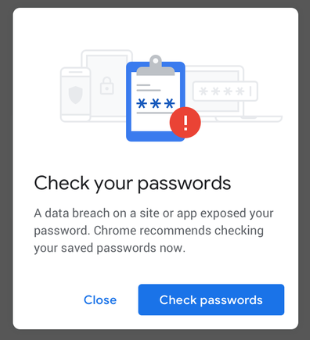The leaves were falling from the trees in the Northern Hemisphere when cybersecurity judges declared Mozilla's Firefox as the most secure major web browser.
See: New Testing Reveals Firefox Is the Most Secure Browser
Now, the leaves are all gone from the trees, but new security features are springing to life in Google's Chrome browser.
The cyber safe browser chase is on.
Chrome browser: 3 new cybersecurity features
Here is a look at the cybersecurity enhancements announced for Version 79 of Chrome as we head into 2020.
1. Chrome warns you when your password has been stolen

"When you type your credentials into a website, Chrome will now warn you if your username and password have been compromised in a data breach on some site or app. It will suggest that you change them everywhere they were used," Google says in a blog post on the security enhancements.
2. Chrome offers real-time phishing protection
Although Chrome updates its compromised or dangerous website list every half-hour and alerts users, sometimes that is not enough. So it has added to this.
"...some phishing sites slip through that 30-minute window, either by quickly switching domains or by hiding from our crawlers. Chrome now offers real-time phishing protections on desktop, which warn you when visiting malicious sites in 30 percent more cases. Initially we will roll out this protection to everyone with the 'Make searches and browsing better' setting enabled in Chrome."
3. Chrome is expanding predictive phishing protection
This is an expansion of its program which warns users if they have entered username and password information into a compromised web domain.
"Now we'll be protecting your Google Account password when you sign in to Chrome, even if Sync is not enabled. In addition, this feature will now work for all the passwords you store in Chrome's password manager. Hundreds of millions more users will now benefit from the new warnings."
Who will go next in the browser race to become more cybersecure?
Stay tuned, security fans, stay tuned.




